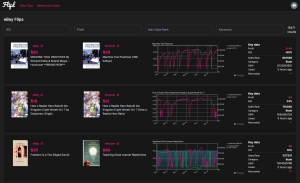- 1. Meta title: How to start a recruiting agency: A step-by-step guide
- 2. Meta description: Discover the essential steps for starting a recruitment agency. From defining your niche to attracting clients, learn the key strategies for launching your own successful agency.
- Focus keywords: how to start a recruiting agency, how to start a remote recruitment agency
- URL slug: launching-a-recruitment-agency-guide
Introduction: the blueprint for building a recruitment agency
Launching a recruitment agency is an exciting endeavor, but it requires careful planning and strategy. The recruitment industry is highly competitive, and to make your mark, you need more than just a great idea; you need a clear blueprint that outlines your approach, target market, and business structure.
Whether you’re considering starting a traditional agency or a remote recruitment business, each type has unique benefits and challenges. This guide will provide you with practical steps, tools, and insights to help you build your recruitment agency from scratch.
Step 1: identify your niche
Before you even think about forming a company, you need to clearly define your niche. The recruitment industry spans a vast array of sectors, and being specific about the type of candidates you will specialize in can set you apart from the competition. Are you focusing on tech talent, healthcare professionals, or sales executives? The more specific you are in your niche, the easier it will be to craft your messaging, find potential clients, and position yourself as an expert in that field.
For instance, a recruitment agency that specializes in placing remote IT professionals has a different approach than one that focuses on retail staffing. Identifying a niche allows you to target a particular audience and build tailored services that address their specific pain points.
Step 2: create a business plan
A detailed business plan will be your roadmap as you launch and grow your recruitment agency. It will also help you secure funding or attract investors if needed. Your business plan should include:
- Agency goals: Short- and long-term objectives for growth.
- Market analysis: Who are your competitors? What’s the demand for your services?
- Financial projections: What are your expected expenses, revenues, and profit margins?
- Operational structure: Outline your team, roles, and how your operations will function.
A well-thought-out business plan is a crucial step in ensuring the success of your agency, as it helps you focus on essential goals and metrics that will guide your efforts.
Step 3: legal and administrative setup
Once your business plan is in place, the next step is to get your agency legally registered. Depending on your location and the type of agency you plan to run (remote or in-person), the legal requirements may vary. You’ll need to consider:
- Business structure: LLC, corporation, or sole proprietorship? This decision will impact your taxes, liability, and day-to-day operations.
- Licensing and permits: Check with local authorities to understand the licensing and permits you’ll need.
- Tax registration: Register with the tax authorities and secure your Employer Identification Number (EIN).
- Insurance: Ensure you have business liability insurance to protect against potential legal claims.
Taking care of these legal and administrative details will prevent you from facing any future roadblocks.
Step 4: build your brand identity
Branding plays a significant role in attracting clients and candidates alike. For a recruitment agency, your brand should reflect your values, mission, and the services you offer. This includes developing:
- Logo and design: Choose colors and designs that align with your values.
- Company name: Ensure it’s catchy, memorable, and aligned with your niche.
- Website: Your website should be user-friendly, professional, and optimized for lead generation. This is especially important if you’re starting a remote recruitment agency, as your online presence will be your primary means of attracting clients.
- Social media: Establish profiles on LinkedIn, Facebook, Twitter, and other platforms to engage with clients and candidates.
A strong brand identity will make your recruitment agency stand out and appear more professional to potential clients.
Step 5: develop your recruitment process
A smooth recruitment process is vital for attracting and retaining clients. Establish clear processes for sourcing, screening, and placing candidates. This includes:
- Sourcing: Identify how you will find candidates—job boards, social media, referrals, etc.
- Screening: Implement a thorough screening process, including interviews and skills assessments, to ensure candidates meet client needs.
- Placement: Ensure you have a structured process for matching candidates with job openings efficiently.
Step 6: attract clients and build relationships
As a recruitment agency, your success hinges on attracting clients. This means networking, marketing, and building relationships with companies in your niche. Consider these strategies:
- Cold outreach: Send personalized emails or messages to potential clients outlining how you can help solve their recruitment challenges.
- Referral programs: Encourage satisfied clients to refer you to others.
- Content marketing: Share industry insights, recruitment tips, and success stories on your website and social media platforms to attract attention.
- Networking: Attend industry events and participate in online forums or LinkedIn groups to connect with potential clients.
It’s also important to nurture relationships with clients over time by providing excellent service, maintaining regular communication, and adapting to their evolving recruitment needs.
Step 7: scaling your recruitment agency
Once your agency has gained some traction, it’s time to scale. This can be done by expanding your team, refining your processes, and increasing your client base. Here are a few strategies for scaling:
- Hiring recruiters: As demand grows, consider hiring more recruiters to handle the influx of clients.
- Expanding your niche: If you’ve mastered one area, consider expanding into new industries or markets.
- Automating tasks: Use ATS systems, CRM software, and other automation tools to streamline repetitive tasks and save time.
Whether you’re scaling locally or globally, maintaining high-quality service is essential to your agency’s growth.
Step 8: managing a remote recruitment agency
If you’re wondering how to start a remote recruitment agency, you’ll need to take a few extra steps to ensure everything runs smoothly virtually. Consider these tips:
- Choose the right tools: Invest in project management tools, cloud-based ATS, and communication software to collaborate effectively with clients and candidates.
- Set clear expectations: Establish a strong communication strategy with both remote recruiters and clients to ensure alignment on goals and timelines.
- Focus on candidate experience: Ensure your candidates feel supported and engaged throughout the recruitment process, even when interacting remotely.
Running a remote agency can be incredibly rewarding, as it provides flexibility for both your team and clients. However, it requires discipline, organization, and the right technology.
Step 9: marketing your recruitment agency
- SEO and content marketing: Optimize your website for relevant keywords like “how to start a recruiting agency” and “how to start a remote recruitment agency” to attract organic traffic.
- Social media advertising: Invest in paid ads on platforms like LinkedIn to target specific job roles and industries.
- Email marketing: Build an email list of potential clients and candidates and engage them with valuable content.
Successful marketing will keep your agency top of mind and help you build a steady stream of leads.
Starting a recruitment agency can be a highly rewarding career path, whether you choose to focus on a traditional recruitment model or a remote agency setup. While it’s not without its challenges, the steps outlined in this guide provide a clear framework for building a successful business. By focusing on your niche, creating a robust recruitment process, and leveraging modern tools and marketing strategies, you can position your agency for long-term success. Now, it’s time to put your plans into action and get started on your recruitment journey.








